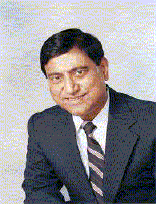Observations reported in the Dec 23, 2005 issue of the Assam Tribune made by James Michael Lyngdoh, former Chief Election Commissioner of India, on the current state of Indian polity need to be critically analyzed. His assertion that the rot in the polity results from electoral politics of division is indeed a sad reality. However, for anyone to conclude that perhaps democracy itself has done more harm than good to the country would be unwise. More or less harm than good is a subjective quantification that is subject to debate. Distortions and mutilations of democracy- not democracy per se-are the root causes of the malaise that Mr. Lyngdoh is rightly concerned about. Let us not forget that democracy is a form of government of the people, for the people, and by the people. If freedom and dignity of human beings are the adhered values of life, democracy as a means of a civil society governance is an ideal concept. Its place is well above anything that has been tried before in history, including monarchy, proletariat dictatorship and right wing dictatorship. The unfortunate fact, however, is that democracy is now abused in India.
The purported linkage between Indian democracy and capitalism to explain the rot in question is also uncalled for. There is no denying the fact that capitalism has its own problems with respect to distribution of wealth. Conversely, it is also true that generally even the poorest do not go hungry in the USA which is the hot bed of capitalism. The rot in the polity in India is independent of its neo-capitalism. There is no such comparable rot in the USA which is an older democracy than India and which is ardently wedded to the concept of capitalism as the system of its economy.

In order to arrest the rot and decline of the polity, clearly, the basic prerequisites for a successful democracy must be satisfied and firmly cultivated. Otherwise, anything including anarchy or robber capitalism mixed with distorted democracy is possible. Education and enlightenment of the voters , laws to safeguard the integrity of the nation, and resolute implementation of the rule of law must be in intact for a healthy democracy. Democracy can not be an excuse for fractures along linguistic, religious, ethnic lines. Any attempt at such division must be stopped with iron hands lest the democracy and national integrity may not survive. Above all, the role of the nation’s intelligentsia in achieving the required mindset can not be overestimated. Unfortunately, the intelligentsia may not have performed as well in post-independent India as they did before. They have the sobering responsibility to uphold the moral scruples of the society and to participate in the democratic process with vigor.
A system and the rule of law is above any single person. Lyngdoh’s implication of the late prime minister India Gandhi’s coercion of the democratic institutions including the supreme court may be true. One may question though why whatever damage a single person did could not be reversed by successive governments that came and went after her demise. Perhaps the honest and decent intelligentsia who essentially and implicitly bear the heavy burden of defending the democracy from cracks has become so reticent and apathetic that the unscrupulous leaders in the society without being confronted and checked have usurped the reins of the nation, heading towards a social catastrophe. These leaders will not stop at anything in their lust for money and power by unfair means. It is not unknown that there is a nexus between these political leaders and the businessmen for mutual benefits. The only hope and reprieve is a set of relevant laws and its resolute implementation through the judicial process to stop that trend. However, without having a minimum threshold of honesty and integrity in the society, that too is not expected to work out. It is a difficult call to say whither destiny is moving India as a nation state. Personally, I have no doubt that all of today’s troubles will eventually be ironed out. It may not happen in this generation, but it surely will.
By Umesh C. Tahbildar, West Windsor,
New Jersey
- Log in to post comments